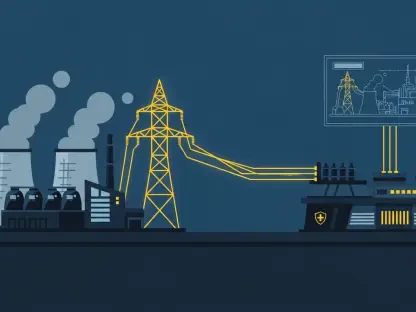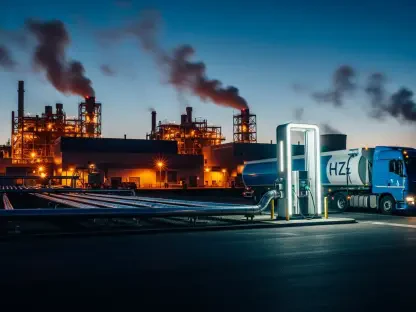In a bold move to address the soaring energy demands of cryptocurrency mining, New York State lawmakers have introduced a groundbreaking legislative proposal that could redefine the industry’s future. Senate Bill S8518, spearheaded by Senator Liz Krueger and Assemblymember Anna Kelles, seeks to impose a tiered excise tax on Bitcoin miners using the energy-intensive proof-of-work (PoW) mechanism, with the generated revenue directed toward energy assistance for low- and moderate-income households. This initiative comes as a response to the staggering additional costs faced by residents—estimated at $79 million annually for households and $165 million for small businesses—due to the immense power consumption of mining operations. As environmental concerns mount and electricity bills rise, this bill raises a critical question: could a financial penalty on high-energy usage catalyze a shift toward sustainable practices in the crypto sector, or will it merely push miners out of the state?
Balancing Economic Innovation and Environmental Impact
Energy Costs and Community Burden
The energy demands of Bitcoin mining have placed an undeniable strain on New York’s power grid, prompting lawmakers to act swiftly with Senate Bill S8518. The PoW process, which requires vast computational power to validate transactions and secure the blockchain, consumes enormous amounts of electricity, often rivaling the usage of small nations. This relentless demand has driven up electricity costs for everyday consumers, with households and small businesses bearing the brunt of the financial impact. The proposed tax structure aims to mitigate this by levying fees based on consumption levels, starting at $0.02 per kilowatt-hour for miners using between 2.25 and 5 million kWh annually, and escalating to $0.05 per kWh for those exceeding 20 million kWh. By redirecting the revenue to support vulnerable communities, the legislation seeks to address the inequity of rising utility bills while holding high-energy industries accountable for their footprint.
Beyond the immediate financial relief for residents, the bill signals a broader intent to recalibrate the relationship between technological innovation and community welfare. While Bitcoin mining has been hailed as a driver of economic activity and job creation in some regions, the hidden costs of its energy consumption often go unnoticed until they hit consumers’ wallets. Critics argue that without regulatory intervention, these costs will continue to spiral, disproportionately affecting those least able to afford them. The tiered tax structure is designed not just as a penalty, but as a mechanism to encourage miners to rethink their operational models. By tying financial consequences to energy usage, the state hopes to push the industry toward efficiency, though the effectiveness of this approach remains a subject of intense debate among stakeholders.
Legislative Intent and Industry Pushback
At the heart of Senate Bill S8518 lies a dual purpose: to curb the environmental impact of Bitcoin mining and to protect New York residents from escalating energy costs. Lawmakers argue that PoW mining’s disproportionate energy demands justify targeted regulation, especially when compared to other high-usage sectors like AI data centers, which have so far escaped similar scrutiny. A notable feature of the bill is its exemption for mining operations powered entirely by renewable energy, reflecting a clear intent to incentivize sustainable practices. This carve-out suggests that the legislation isn’t merely punitive but aims to steer the industry toward greener alternatives, aligning with broader state goals for carbon reduction and environmental responsibility.
However, the crypto mining industry has voiced significant concerns over the potential ramifications of the tax. With the median cost of mining a single Bitcoin already surpassing $70,000, additional financial burdens could render grid-based operations unprofitable, potentially driving miners to relocate to states with looser regulations. Industry advocates contend that rather than imposing taxes, the state should focus on fostering innovation through incentives for renewable energy adoption or partnerships to repurpose wasted energy. The tension between regulatory oversight and economic viability underscores a larger challenge: how to nurture emerging technologies without sacrificing environmental or social priorities. As the bill progresses, its reception within the industry will likely shape the narrative around similar policies nationwide.
Toward a Sustainable Future in Crypto Mining
Renewable Energy as a Game-Changer
One of the most intriguing aspects of Senate Bill S8518 is its exemption for Bitcoin mining operations that rely exclusively on renewable energy sources, a provision that could herald a transformative shift in the industry. This incentive aims to nudge miners away from fossil fuel-dependent grids and toward solar, wind, or hydroelectric power, which could significantly reduce their carbon footprint. Such a move aligns with global trends emphasizing sustainability in tech sectors, where the environmental cost of innovation is increasingly under scrutiny. If successful, this policy could position New York as a leader in marrying cryptocurrency growth with green energy solutions, setting a benchmark for other states grappling with similar challenges.
Yet, transitioning to renewable energy is not without hurdles for Bitcoin miners. The upfront costs of infrastructure, such as installing solar panels or securing access to hydroelectric facilities, can be prohibitive, especially for smaller operations already squeezed by narrow profit margins. Additionally, the intermittent nature of some renewable sources poses logistical challenges for an industry that requires constant uptime to remain competitive. Despite these obstacles, the exemption offers a clear pathway for miners to avoid the excise tax, potentially spurring investment in sustainable technologies. The question remains whether enough companies will embrace this shift to create a meaningful reduction in energy-related costs for New York residents, or if the exemption will simply remain an unattainable goal for many.
Broader Implications for Regulation and Innovation
The introduction of Senate Bill S8518 marks a pivotal moment in the ongoing debate over how to regulate energy-intensive industries like cryptocurrency mining without stifling innovation. If passed, this legislation could serve as a blueprint for other states facing similar energy cost dilemmas, signaling a growing movement toward accountability in the crypto space. The focus on PoW mining, in particular, highlights a nuanced approach to regulation, targeting a specific mechanism rather than the industry as a whole. This precision reflects an understanding of the diverse impacts within the sector, though it also raises questions about fairness when other high-energy industries escape comparable oversight.
Looking beyond New York, the ripple effects of this bill could reshape the national conversation around technology and environmental policy. As states observe the outcomes of this tax—whether it drives miners away or fosters greener practices—there may be increased pressure to adopt uniform standards or federal guidelines for crypto mining. Moreover, the emphasis on renewable energy exemptions could accelerate research and development in sustainable mining technologies, potentially benefiting the industry globally. While the immediate focus remains on mitigating local energy costs, the long-term vision appears to be one of balance, where technological advancement and environmental stewardship coexist. Reflecting on the steps taken, the challenge ahead lies in ensuring that such policies adapt to the evolving landscape of digital currencies and energy needs.









